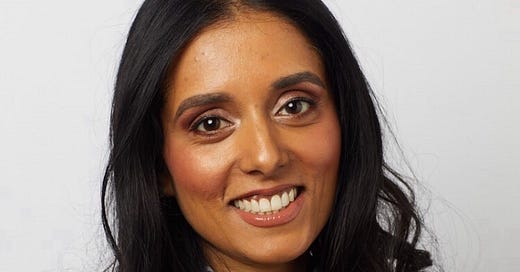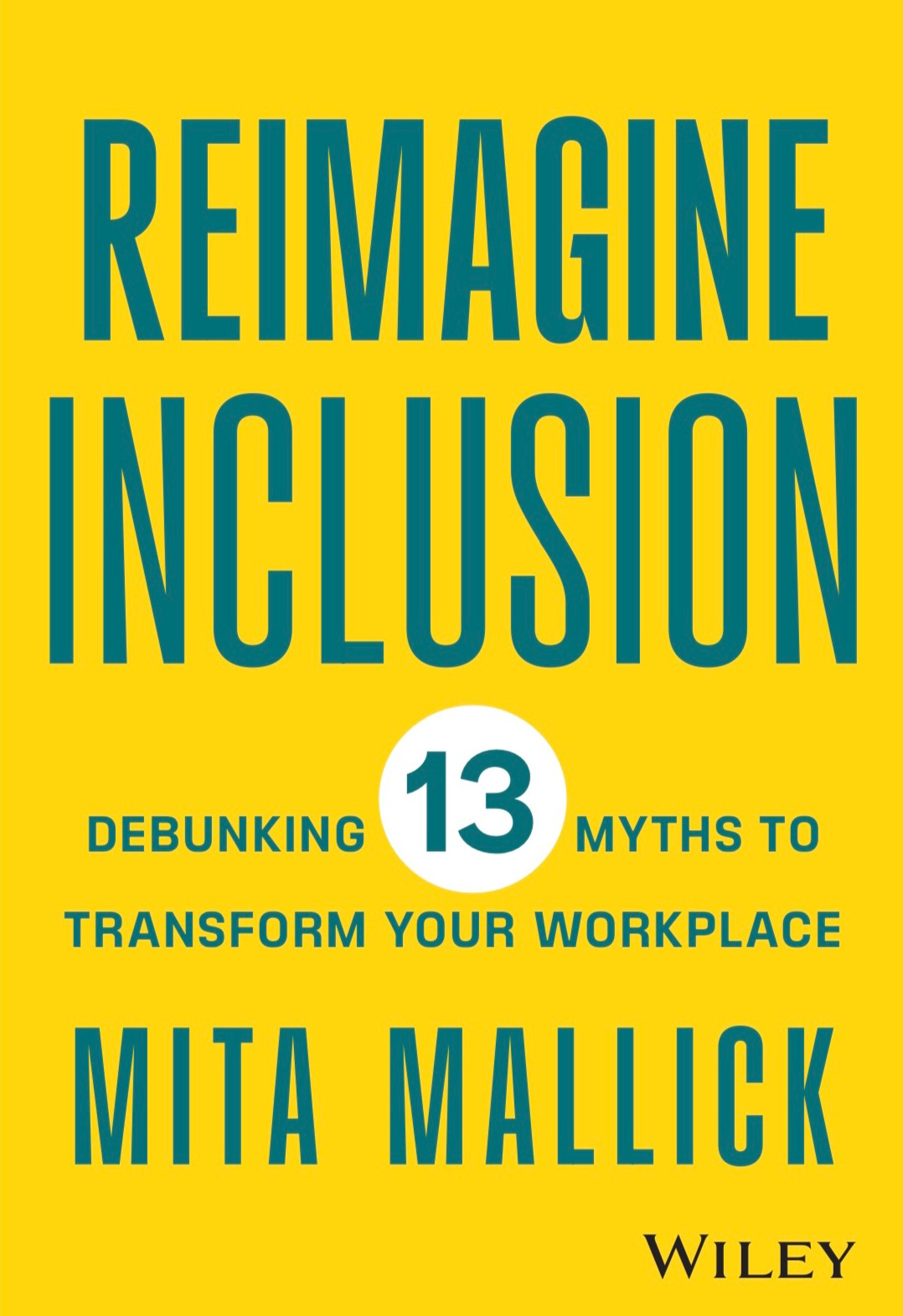Mita Mallick on the power of inclusion for retention, being an ally and her new book on debunking workplace myths.
Mita Mallick is a corporate change-maker with a track record of transforming businesses. She gives innovative ideas a voice and serves customers and communities with purpose. She has had an extensive career as a marketer in the beauty and consumer product goods space, being a fierce advocate of including and representing Black and Brown communities.
Her passion for inclusive storytelling led her to become a Chief Diversity Officer, to build end to end inclusion ecosystems across big and small organizations. Mallick has brought her talent and expertise to companies like Carta, Unilever, Pfizer, AVON, Johnson & Johnson and more. She’s a sought after speaker and coach to start-up founders, executives, and public CEOs. She is also the cohost of the popular podcast, The Brown Table Talk, part of the LinkedIn Podcast Network. On the Brown Table Talk, Mita and Dee Marshall share stories and tips on how to help Women of Color win at work, and advice for allies on how they can show up.
Mallick is a LinkedIn Top Voice, a contributor for Harvard Business Review, Adweek, Entrepreneur and Fast Company. Mallick has been featured in the The New York Times, The Washington Post, Time Magazine, Forbes, Axios, Essence, Cosmopolitan Magazine, and Business Insider. She was featured in a documentary created by Soledad O’Brien Productions for CBS News entitled: Women in the Workplace and the Unfinished Fight for Equality. Mallick holds a B.A. from Barnard College, Columbia University and a M.B.A. from Duke University’s Fuqua School of Business. She lives in New Jersey, US, with her husband and two children.
Dinal: With over 15 years experience, you've likely seen a lot of shifts across the DEI landscape. How would you describe that change a) from a leadership perspective and b) from an employee's perspective? What do you think is top of mind for business leaders today and how can DEI leaders connect into that?
Mita: The marketplace dynamics continue to shift. So many of us are now trying to come to terms with the fact that constant change in our careers is now the new normal. The demographics of the US and globally continue to shift. Layoffs continue while there are still labor shortages. And employees are demanding more and more of their leaders, and their companies. In the absence of the government stepping up, many are looking to their employer to provide generous benefits and to step up and speak out against human rights issues and social justice.
“Inclusion is one of the biggest retention tools leaders have access to right now and can be game changing for their organizations.”
One of the biggest things employees are looking for right now though: to feel included. They want to feel like they are seen, heard, valued and recognized for their contributions. That they belong in their organizations. Leaders can do this in the everyday small and big actions. By checking in with their teams- not with a project list, but to see how they are actually doing. To allow them to present and own their own work; giving them the space to share their ideas and concerns; thanking them for their efforts. Inclusion is one of the biggest retention tools leaders have access to right now and can be game changing for their organizations.
Dinal: You started Brown Table Talk a few years ago, a podcast focused on the challenges women of color face in the workplace. From those conversations, what are some of the main challenges you've picked up on and what are some of the strategies leaders can implement to address them?
Mita: As a woman of color, I am exhausted. So many of us have been trying for most of our careers to just fit in, to try to feel like we belong, and work hard to survive workplaces that were never designed for us. And we want to be thriving, not simply surviving, in our workplaces. We are tired and exhausted of always having to speak up, advocate and defend ourselves. We need allies to step up and help.
One of the things I remind leaders of is this: we are all an ally for someone. We have to be looking out for each other in our workplaces. When you hear something being said that makes you uncomfortable, speak up in the moment. And if you can’t speak up in the moment, you can always intervene after the fact. In my new book, "Reimagine Inclusion: Debunking 13 Myths To Transform Your Workplace" I provide actionable tips on how we can show up as allies for each other, to do better, and be better.
Dinal: Speaking of your new book and without giving too much away, what new insights can DEI leaders expect from the book and how will these help them to do their jobs better?
Mita: I wrote this book 4 years ago and it has been a journey to get it published. There are a lot of great books out in the marketplace on leadership and culture and inclusion. I wanted to say the quiet parts out loud that hold us back from making meaningful progress in our workplaces. All of the myths and stories we tell ourselves that stops us from truly building more resilient and inclusive workplaces.
“In my new book, I wanted to say the quiet parts out loud that hold us back from making meaningful progress in our workplaces.”
Some of my myths include: "I am all for diverse talent. As long as they are good." and "Of course we support women. We just extended maternity leave" and "These DEI efforts don’t benefit me. My voice as a white man doesn’t count anymore." Each myth opens with a powerful story, I debunk the myth, and then I leave you with practical and actionable advice and tips on how to show up differently to work. I know this book will be a game changer for anyone committed to building more inclusive and resilient cultures.
You can pre-order Mita’s book today:






